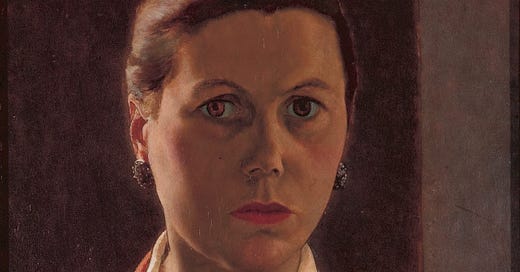Advice on writing and love!
“I’ve spent most of my adult life resisting the possibility of romantic love because I feared how it would distract me from my writing work.”
Welcome to the latest installment of my occasional advice column. Note: This week I’m also trying an experiment in communal reading that I’d love for some of you to join—details after the advice.
Dear Subtle Maneuvers,
I’ve spent most of my adult life resisting the possibility of romantic love because I feared how it would distract me from my writing work (I’m 33). Truthfully, I also avoided it, of course, because I was scared of the vulnerability, time, and risk it would entail—all things that I was less afraid to lavish on what I always thought was my one true pursuit, my writing.
Well, out of the blue, I seem to be falling in love. With a person. I am completely flummoxed, blindsided, so so happy, and also so incredibly confused. Where did this come from?! It makes me realize how I wasn’t just scared of love for so long, I also very deeply believed that I did not deserve it. So much of writing, for me, has been entwined with self-flagellation, self-punishment, self-deprivation. All or nothing. Previous romances have very often ended because of my tendency to prioritize work over anything else—though I now realize that, in addition to this reason, I also often didn’t entirely love the person I was with. And for the past decade or so, I’ve worked under the idea that the amount of anxiety, care, and pain I put into my work basically winnows it into its best possible version. You can imagine how unpleasant it probably was to be in a relationship with me if you didn’t have similar tendencies.
Now, these structures on which I’ve built my life seem to feel like they could suddenly change. I want that—I figured out that I wanted to change my life in some fundamental ways before even meeting this new partner—but I’m terrified that I’m going to blow it: my new love, and also my new and serious book project, on which I’m standing at the cusp. My new partner and I are of the same persuasion: addicts, basically, who have been addicted to their work, primarily, with other things thrown in here and there. As such, we’ve vowed to go really slowly, to see each other twice a week on specific days, to keep communication as open as possible, to give each other lots of space and also support. But I’m wondering what else I can do to open my life and my work to love, and the reverse—to finally find the support I didn’t realize that I dearly needed, and have it somehow dovetail with the space, time, focus, and independence so essential to my writing. I want this so badly: and I’m only now realizing that if I play it right, both love and work, hand in hand, might be possible for me.
All the best,
L
Dear L,
First of all, congratulations on your new love—and your new and serious book project! What wonderful (and, yes, also terrifying) developments to carry forth into the New Year.
I wanted to start by congratulating you because I know I tend to greet good news by jumping straight past enjoyment into simmering apprehension, and it sounds like you might do the same thing. Such a bad habit! Not only because we miss fully savoring things, but because sometimes I think all our worrying has the opposite of its intended effect: Instead of staving off the negative outcomes we’re trying to avoid, we can end up manifesting them, as a sort of self-fulfilling prophecy. It’s like when you’re a kid learning to ride a bike: If you focus all your energy on not riding directly into that tree, somehow you end up riding . . . directly into that tree.



